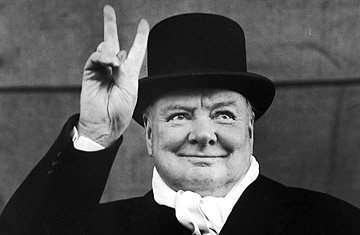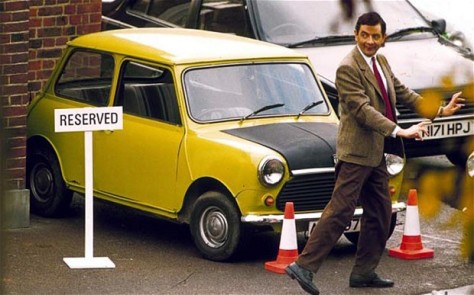FROM long experience I’ve developed a healthy scepticism about polls, surveys and, particularly, ‘vox pops’ – you know, those street-corner tests of public opinion the media loves to indulge in, where most answers are predictably politically correct.
Unless they are headbangers on day release from a nearby psychiatric facility or have an ardent view on the topic – anyone for fracking, capital punishment or FIFA? – people’s kneejerk reactions tend to parrot mainstream opinion, even if they’re lying through their pearly whites.
After all, who wants to be damned from their own mouths for being a racist, anti-environmentalist, male chauvinist pig…or, worse still, a UKIP supporter.
To continue the theme: how can we be certain eight out of 10 cats prefer Whiskas? None of mine did and nobody is told the total number of moggies ‘surveyed’ or what other brands were sampled.
And if Carlsberg claims to be ‘probably’ the best lager in the world, why doesn’t it refresh ‘the parts other beers cannot reach’, as Heineken supposedly does?
Yeah, yeah, I know these are just examples of admen’s creative thinking and aren’t taken any more seriously than those who believes Wonga is a not-for-profit organisation and bankers deserve even more humungous bonuses.
Nonetheless, such claims have an impact on our buying habits.
Similarly, if the ditty that wins the European Song Contest is so darned good, why doesn’t it become an instant, Top 20 hit? Or, maybe Molitva, sung in Serbo-Croat, or Sweden’s Diggi-Loo Diggi-Ley soared up charts and I didn’t notice.

SIMPLY THE GREATEST: Wartime leader, Sir Winston Churchill, topped the 2012 BBC poll to find The Greatest Briton
But you don’t need to consult Graham Norton or Terry Wogan for explanations why Eurovision is a stitch-up, with groups of mutually back-scratching nations taking it in turn to vote for each other. All know the PR payback in terms of national prestige is worth chicanery more redolent of elections for the presidency of the Islamic Republic of Iran.
Back in 1999 – in a campaign orchestrated by the Press and the nation’s leading politicians – the Turks tried to ‘fix’ the vote for Time’s Person of the 20th Century by balloting in their millions in favour of Mustafa Kemal Ataturk.
While he might be lauded locally as the founder of modern, secular Turkey, Ataturk is hardly a household name in Llandudno. Yet, briefly at least, he led in every category the prestigious magazine listed…warrior, statesman, scientist, artist and entertainer, even if his stand-up didn’t feature overmuch at Istanbul’s Comedy Central.
It was only when Turkey’s long-time foes, Greece and Cyrprus, rumbled the fiendish plot – and voted in their droves to counter it – that Ataturk’s stock plunged, to be variously replaced by the Sir Winston Churchill, Bob Dylan and Albert Einstein, the eventual winner.
For the record, Ataturk made the Top 100, but so did mobster, Lucky Luciano, who, Time said, ‘modernized the Mafia, shaping it into a smoothly-run, national crime syndicate, focused on the bottom line.’
A survey less tainted by gerrymandering is the BBC’s 10-yearly quest to find The Greatest Briton.
The 2012 edition attracted 30,000 votes and Churchill, the nation’s indefatiguable wartime leader, came top, squeezing out engineering genius, Isambard Kingdom Brunel, and – presumably based on enduring sentimentality – Princess Di into a highly creditable third.
However, the other day another poll lit up my eye: how we Brits are viewed by others. Or, to quote Robbie Burns’ Ode to a Louse – which, to the best of my knowledge, hasn’t yet been adopted by Scots Nats as a commentary on the English – ‘to see ourselves as others see us’.
More than 5,000 people from the US, China, India, Brazil and Germany were asked to summarise their views of us and give an example of a person they most associate with British culture, without being offered a list of options.
On the whole Britons emerged with a decidedly contradictory reputation.
Those surveyed by IPSO-Mori, on behalf of the British Council, regarded us as ‘polite’, ‘friendly’ and ‘well-educated’, but also hard-drinking, xenophobic and afflicted with appalling eating habits (note: with all their slurping over bird’s nest soup, the Chinese are fine ones to talk).
When asked to list the best and worst characteristics, one way or another, British manners were by far the most common answer, cited by 46 per cent of those polled.
A quarter said the British sense of humour was a plus factor and as many as 37 per cent thought Britons to be ‘learned’.
But among less positive responses, 27 per cent said they thought the British ‘drink too much’, 23 per cent listed ‘bad eating habits’, just ahead of ignorance of other cultures and intolerance towards people from other countries.
The British Council’s John Worne said, ‘While there’s a lot to be proud of, some stereotypes still colour the way that we’re viewed overseas: boozy, bad eaters and ignorant of other cultures all figure in our worst characteristics.
‘At our best we are rated ‘polite’, ‘educated’ and ‘friendly’, and the English language, our cities, universities, arts and culture definitely make people want to visit, study and do business with us.’
So who did foreigners most associate with British culture? Literary giants, such as Chaucer, Milton or Burns? Maybe national icons, like Churchill, The Beatles and Charlie Chaplin? Or great shapers of military history, as exemplified by Elizabeth I, Oliver Cromwell and Lord Nelson?
Not a bit of it.
While, predictably, The Queen and Shakespeare commanded the premier positions, David Beckham came third, while Churchill and the titans of English prose were relegated to also-rans behind…Mr. Bean!
It seems Rowan Atkinson’s fictional clown – with his tweedy togs, emblematic Mini and ability to overcome idiocy – is the epitome of Britishness.
There’s no doubt Bean’s antics transcend all language barriers, since he says nothing that makes any sense.
Maybe that’s where the likes of Chaucer and Co. went wrong.
PS: I wonder what the world would make of the French?

